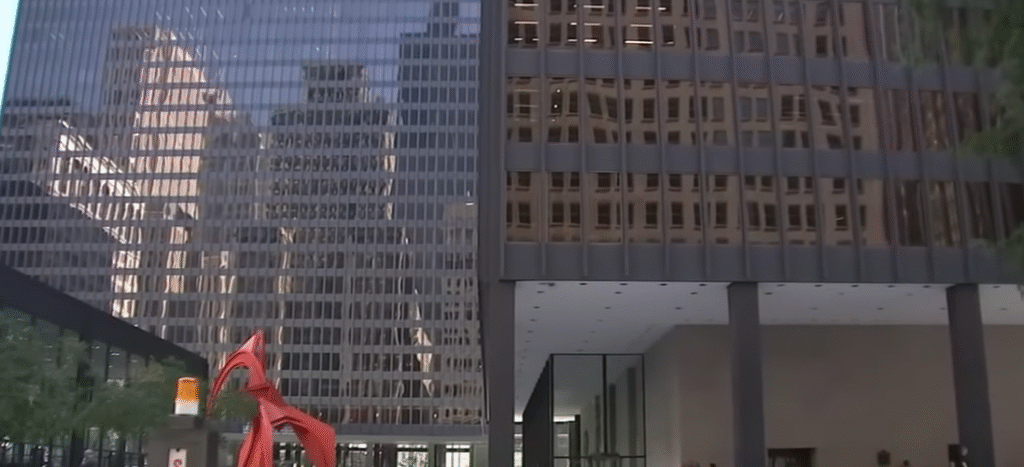The Illinois DMV Final Notice Text scam is now among the most advanced instances of how trust can be manipulated and taken advantage of online. The remarkably accurate message states that failure to pay a “unpaid ticket” promptly will result in the suspension of a driver’s license or registration. Even cautious people are influenced to act impulsively by the combination of its official appearance, urgent tone, and credible appearance.
As Secretary of State Alexi Giannoulias has repeatedly stated, his office never communicates fines, license suspensions, or unpaid fees. Only appointment reminders are sent, and there are never any links to make a payment. However, this scam has defrauded thousands of Illinoisans in spite of such guarantees. The reason isn’t negligence, but rather how creatively the scam’s design has evolved into something polished, localized, and psychologically manipulated to incite fear.
Usually, the opening line of the text is frighteningly accurate: “Illinois State Department of Motor Vehicles Final Notice: Enforcement Penalties Begin May 28.” After that, it instructs recipients to click a link and pay “outstanding traffic tickets” in order to avoid suspension or additional legal action. Thanks to the use of dates, codes, and bureaucratic terminology, the tone is remarkably similar to that of official correspondence. The victims are taken to a phony website that mimics official Illinois government portals, complete with state seals, logos, and authentic-looking fonts, after clicking on the link.
Profile — Alexi Giannoulias and the Illinois DMV Scam Response
| Category | Details |
|---|---|
| Name | Alexi Giannoulias |
| Title | Illinois Secretary of State |
| Office Address | 213 State Capitol, Springfield, Illinois, 62756 |
| Profession | Politician, Banker, Public Administrator |
| Notable Work | Led anti-scam initiatives and digital literacy campaigns in Illinois |
| Known For | Warning residents about phishing and smishing scams targeting Illinois drivers |
| Key Statement | “Our office does not send texts about fines, tickets, or suspensions — only appointment reminders.” |
| Authentic Source | www.ilsos.gov |

The phony website has an incredibly clear user interface, with a neat page, few distractions, and precisely formatted “payment verification” boxes. It is very effective at lowering skepticism because of its simplicity. Within seconds, users unintentionally divulge personal data like debit card numbers, Social Security numbers, or driver’s license numbers. The operation is referred to by cyber experts as “smishing,” which is a term for phishing via SMS. This type of cybercrime is particularly dangerous because it preys on urgency rather than reason.
According to Giannoulias, this scam is a test of how fear can overcome reason and is a digital mirror reflecting our collective weaknesses. Anxiety about losing their driving privileges caused many victims to react in an instinctive way. Since most people view a driver’s license as a sign of independence and regular stability, the emotional manipulation is remarkable. The fear of losing it makes people comply right away. It is the scam’s understanding of human panic, not its technology, that makes it so brilliant.
In press releases and televised briefings, Giannoulias has urged Illinoisans to report the text to ReportFraud.ftc.gov, block the sender, and remove the text. He urges people to act with confidence rather than in fear, and his message is one of empowerment rather than alarm. By using social media to spread the word, local police departments from Peoria to Chicago have raised awareness, which has led to a sharp decline in the number of reported cases.
When compared to previous phishing attempts, cybersecurity experts have observed that the scam’s sophistication has significantly increased. It uses localized data, stays away from misspellings, and updates its templates frequently to remain current. One version mimics state tax notifications, while another refers to Illinois tollway charges. Because of this flexibility, the scam has become extremely adaptable, changing to get around spam filters and take advantage of emerging communication trends.
Illinois authorities have responded with remarkable effectiveness. The Secretary of State’s office, in collaboration with telecom providers, has implemented automated text detection systems that identify questionable messages before they are seen by customers. These systems function similarly to a bee swarm: they are coordinated, quick, and flexible. Once an attack pattern is identified, the network swiftly adapts to prevent further attacks. Smishing attempts have been considerably less common throughout the state thanks to this machine learning-powered collective intelligence strategy.
Illinois has been developing a digital culture of awareness in addition to prompt response. Through social campaigns, educational partnerships, and community workshops, locals are learning to recognize warning signs, such as links that lead to unknown domains, requests for personal information, or threats of suspension. The fact that this proactive approach turns potential victims into knowledgeable protectors of their online safety makes it especially advantageous.
There has also been national talk about the Illinois DMV scam. States like California and New York have seen similar spoof texts, but the Illinois campaign has raised the bar for public outreach. It is particularly resilient because it combines technological prevention with government transparency, not only responding to fraud but also changing the way digital trust is upheld. The Illinois framework is currently being studied by other states as a model for handling widespread smishing threats.

